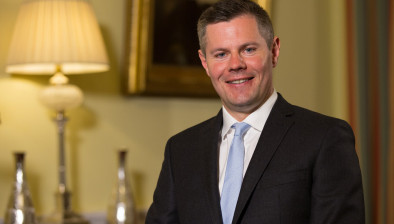Holyrood committee highlights ‘significant concerns’ regarding affordable housing budget cut

A committee of MSPs has questioned the Scottish Government’s plan to slash the funding for new affordable homes and has sought further information on the impact of this decision on its housebuilding targets.
The SPICe briefing on the Scottish Budget 2024-25 states that: “The wider reductions to the capital budget are … seen in the Affordable Housing Supply Programme (AHSP) budget. This is being reduced by 27% in real terms in 2024-25.”
In its report on budget on the budget, Holyrood’s Finance and Public Administration Committee said that a number of witnesses highlighted specific concerns regarding the impact of these cuts, including the JRF, which suggested the reduction “is brutal in the context of the housing situation in this country”. The JRF went on to say that there is a significant risk that the Budget could lead to a rise in poverty, particularly due to the cuts in the affordable housing budget and added that “it feels as though the affordable housing budget was cut because something had to be cut”.
The report concluded: “The Committee draws the Scottish Government’s attention to the significant concerns expressed by witnesses regarding its decision to cut the affordable housing budget in view of reductions to available capital. We seek further information on the impact of this decision on its target to build 110,000 homes by 2032.
“We also ask the Scottish Government to demonstrate how this decision aligns with its own spending prioritisation criteria and whether it has fully assessed the potential impact on tackling poverty and growth.”
Responding to the report, director of external affairs at SFHA, Carolyn Lochhead, said: “The Committee rightly raises real concerns about the brutal cut to the affordable housing budget, because of its impact not only on economic growth but also on tackling poverty.
“In the run up to the Budget, progress on delivering affordable housing was already stalling and the flagship target of 110,000 affordable homes by 2032 was off-track. The answer to that should have been to redouble our efforts, not cut the budget.
“More social homes quite simply mean fewer children growing up in poverty. Given the committee’s recommendations, it’s hard to see how the Scottish Government can go ahead with this hammer-blow cut and still meet its own commitments on housing, growth or poverty.”
The report acknowledges that deputy first minister Shona Robison indicated that this was one of the most difficult decisions taken in this Budget and that, if the availability of capital funding changes, the housing budget would be her number one priority.
Asked about the impact on the Scottish Government’s target of having in place 110,000 affordable homes by 2032, the deputy first minister said that 14% of the target had been delivered so far, the profiling of the target would need to change, and private investment will be required to deliver the target. She also confirmed that there is “a clear appetite to invest”, particularly in mid-market rental properties.
Finance and Public Administration Committee convener Kenneth Gibson said: “Significant pressure on Scotland’s public finances have presented difficult tax and spending decisions in the budget. Everybody recognises that.
“The Scottish Government priorities are based on delivering its three ‘missions’ of equality, opportunity and community. However, there was a great divergence in views from witnesses on what those priorities should be, with the focus understandably in areas where budgets will be reduced rather than increased.
“The committee is unclear how spending has been prioritised towards a fair, green and growing economy.
“Regarding taxation, there is uncertainty about the behavioural impact on taxpayers earning more than £75,000 per year and when there will be a fundamental review of the council tax.
“The Scottish Government needs to deliver long-term financial planning. At present it gives the impression that it’s procrastinating on important decision-making that would help the sustainability of Scotland’s public finances, albeit in the medium and longer-term.
“The Committee is also disappointed at continuing cuts to the capital budget by the UK Government which restricts the Scottish Government’s ability to invest in capital projects, achieving net zero and growing the economy.”









